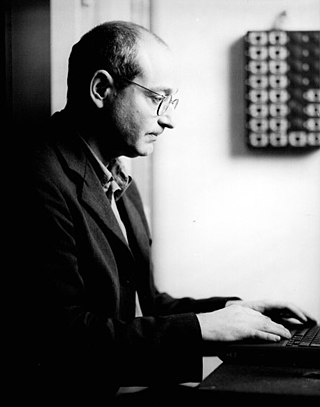Oliver Korte (born 10 April 1969) is a German composer, music theorician, musicologist and College professor.
Contents

Oliver Korte (born 10 April 1969) is a German composer, music theorician, musicologist and College professor.

Born in Hamburg, Korte studied musical composition, music theory and musicology in Hamburg, Vienna and Berlin. Important impulses were also given to him by private composition studies with Gösta Neuwirth. His compositions have been awarded several composition prizes and scholarships. In 2002 he received his doctorate at Technische Universität Berlin with a thesis on the Ecclesiastical Action of Bernd Alois Zimmermann. After teaching positions at the Hochschule für Musik "Hanns Eisler" and at the Hochschule für Musik und Theater Rostock as well as a position as research assistant at the Universität der Künste Berlin he was appointed professor for music theory and ear training at the Musikhochschule Lübeck in autumn 2006. He is co-founder of the Society for Music Theory (GMTH) and editor of the Schriften der Musikhochschule Lübeck. In the winter semester 2017/18 he also taught as a visiting professor at the Johannes Gutenberg-University Mainz.
Kortes main work to date is the opera Copernicus for singer, narrator, orchestra and electronics, premiered in 2015 at the Festspielhaus Hellerau in Dresden. [1] The composer calls the work an "opera spaziale" ("space opera"). This is due to the fact that a spatial concept is derived directly from the subject: strings, wind instruments and percussion, as well as loudspeakers and video projections are positioned in "Copernican rings" around the audience. The wind instruments, comparable to a planetarium, move into ever new acoustic constellations. [2] Korte has assembled the libretto from various thespian original texts of the Renaissance as well as from some sound recordings of the 20th century. The work was received by critics as "multilingual, philosophical world theatre. [3]


Isang Yun, or Yun I-sang, was a Korean-born composer who made his later career in West Germany.
Friedrich Goldmann was a German composer and conductor.
Herbert Eimert was a German music theorist, musicologist, journalist, music critic, editor, radio producer, and composer.

Georg Hajdu is a German composer of Hungarian descent. His work is dedicated to the combination of music, science and computer technology. He is noted for his opera Der Sprung – Beschreibung einer Oper and the network music performance environment Quintet.net.
Johannes Wolfgang Zender was a German conductor and composer. He was the chief conductor of several opera houses, and his compositions, many of them vocal music, have been performed at international festivals.
York Höller is a German composer and professor of composition at the Hochschule für Musik Köln.

Günter Kochan was a German composer. He studied with Boris Blacher and was a master student for composition with Hanns Eisler. From 1967 until his retirement in 1991, he worked as professor for musical composition at the Hochschule für Musik "Hanns Eisler". He taught master classes in composition at the Academy of Music and the Academy of Arts, Berlin. He was also secretary of the Music Section of the Academy of Arts from 1972 to 1974 and vice-president of the Association of Composers and Musicologists of the GDR from 1977 to 1982. Kochan is one of eleven laureates to have been awarded the National Prize of the GDR four times. In addition, he received composition prizes in the US and Eastern Europe. He became internationally known in particular for his Symphonies as well as the cantata Die Asche von Birkenau (1965) and his Music for Orchestra No. 2 (1987). His versatile oeuvre included orchestral works, chamber music, choral works, mass songs and film music and is situated between socialist realism and avant-garde.
In music, the Cologne School is a loosely associated group of composers and performers of the generation that came to prominence in the 1970s, who lived and worked in the city of Cologne, Germany.
Birgit Lodes is a German musicologist and professor at the University of Vienna.
Hermann Danuser is a Swiss-German musicologist.
Gösta Neuwirth is an Austrian musicologist, composer and academic teacher. He studied in Vienna and Berlin, where he wrote a dissertation on harmony in Franz Schreker's Der ferne Klang. He has taught at universities and music schools including the Musikhochschule Graz, University of Graz, Hochschule der Künste Berlin and University of Freiburg. His compositions include a string quartet and a chamber opera.
Hanns-Werner Heister is a German musicologist.
Matthias Herrmann is a German musicologist and university professor.
Arno Forchert was a German musicologist.
Gerd Rienäcker was a German musicologist.
Wulf Konold was a German musicologist, dramaturge and theatre director.
Thomas Reuter is a German composer, choral conductor, and a pianist focused on free improvisation.

Harry Goldschmidt was a Swiss musicologist.
Otto Reinhold was a German composer and music educator
Horst Förster was a German conductor, choirmaster, violinist and university teacher. In 1952, he was appointed the youngest General Music Director of the GDR in the Landestheater Eisenach. Afterwards, he was chief conductor of the Philharmonisches Staatsorchester Halle and the Singakademie Halle (1956–1964) as well as the Dresden Philharmonic (1964–1966), and of Belgrade Philharmonic Orchestra from 1985-1986.